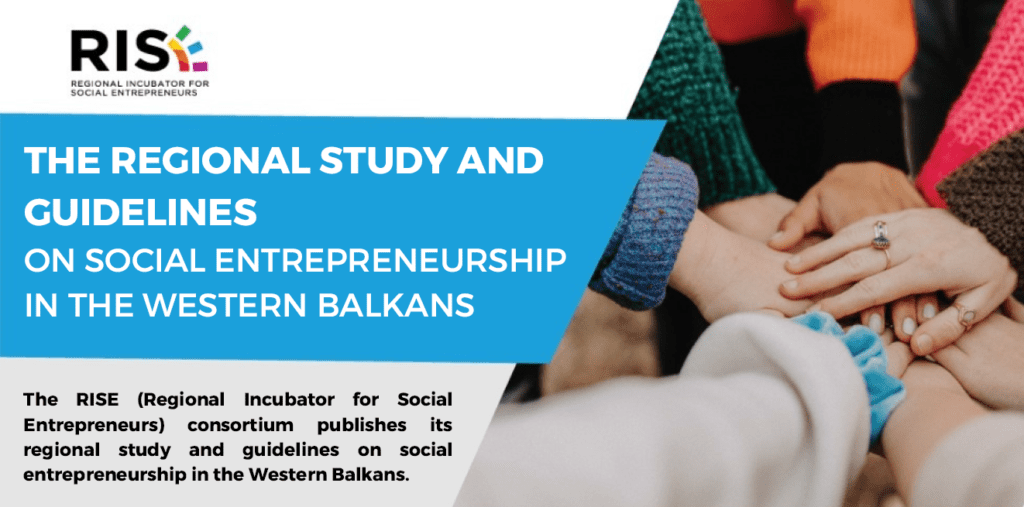
RISE Publishes Regional Study and Guidelines on Social Entrepreneurship in the Western Balkans
Developed and conducted by the two researchers, Teo Petricevic and Jelena Andjelic, and coordinated by the RISE consortium, the document provides the most recent, relevant, and concise information on the current state of social entrepreneurship and youth entrepreneurship in the Western Balkans. The document focuses on policy and legal framework, education systems, financial and non-financial support structures, networking initiatives, new social enterprise markets in the region.
The document consists of two parts:
1) THE STUDY that provides relevant data on the state of play of social and youth entrepreneurship in the region and lessons learnt from Albania, Bosnia and Herzegovina, Kosovo*, Montenegro, North Macedonia, and Serbia;
2) GUIDELINES for social entrepreneurship ecosystem, CSOs and policy-makers describing the needs and competencies for youth social entrepreneurship and recommendations for action based on lessons learnt from the study.
Some of the most significant findings from both parts are the following:
2 out of 6 Western Balkan governments have adopted an official definition of social entrepreneurship, as well as the specific legislation on social enterprises; social entrepreneurship is gaining importance as a legislative topic in the rest of the region.
Until specific legal form for social enterprises develops in Western Balkan 6, enterprises mainly operate using a legal form of association, cooperative or limited liability company;
In each of the WB6, at least three national stakeholders have designed and are implementing specific support programs for young and/or social entrepreneurs. The private support structures and programs are in the process of reaching sustainability without the financial support of third parties;
Across the region, entrepreneurship is introduced in primary and secondary education programs, and in some cases, also in tertiary education. Entrepreneurial education curricula could benefit from the development of the entrepreneurial mindset and focusing on the practice of the skills;
Funding opportunities are mainly in the form of grants and seed investments; with networks of business angels and other private investors active in some of Western Balkans 6, steps to be taken should be the development of solidifying programs or support to of social enterprise private investments;
Researchers identified a critical need to inform and popularize the concept of social entrepreneurship and social buying to the general public and to bring it closer to public discourse.
Young entrepreneurs are motivated by the sense of freedom and independence and opportunity to make a change, to learn and gain valuable work experience;
Numerous successful social enterprises are in existence and can be presented as role models in the regional ecosystem.
Click HERE to download the Summary of the Study in English
Click HERE to download the Summary of the Study in French
Click HERE to download the Summary of the Study in Albanian
Click HERE to download the Summary of the Study in Bosnian
Click HERE to download the Summary of the Study in Macedonian
Click HERE to download the Summary of the Study in Montenegrin
Click HERE to download the Summary of the Study in Serbian
*This designation is without prejudice to positions on status, and is in line with UNSCR 1244/1999 and the ICJ Opinion on the Kosovo declaration of independence.

